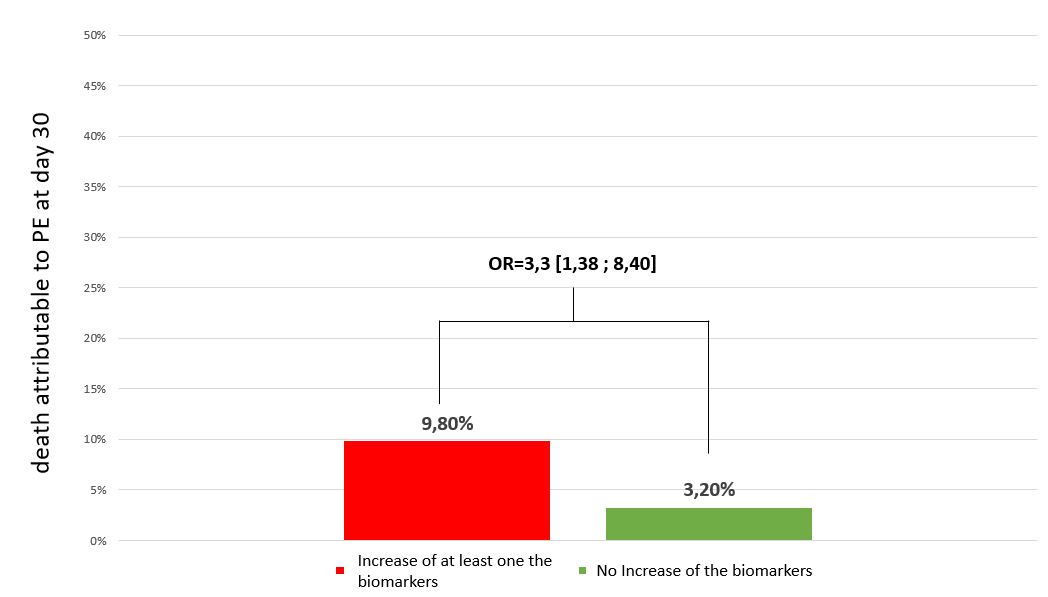Abstract
Introduction:
Cardiac biomarkers (troponin, NT-proBNP) play a crucial role in prognostic evaluation of patients with pulmonary embolism (PE). In contrast to troponin in acute coronary syndrom, there is little data on the relevance of their kinetics in acute PE.
Methods:
This is a retrospective, observational, monocentric study conducted at the CHU de Saint-Etienne. We included all consecutive adult patients with PE confirmed by CTPA, who had a dosage of at least one cardiac biomarker within 72 hours between April 1, 2014 to July 1, 2020. We aimed to determine the proportion of patients in whom at least one biomarker increased, and to assess the impact of this increase on the risk of death attributable to PE at day 30.

Results:
479 patients with acute PE (mean age= 74 years, sPESI?1 in 412 patients) were analysed. Within 72 hours, 163 (34%) experienced an elevation of at least one of the cardiac biomarkers. These patients had a significant increase in the risk of death, with an OR of 3.3 [1.38; 8.40].
Conclusion:
Measuring cardiac biomarkers on admission and within 72 hours of acute PE can identify a significant proportion of patients in whom at least one of the biomarkers increases. These patients seem to have at 3-time higher risk of death within 30 days. These data must be confirmed, but could allow for a more precise identification of patients who could benefit from more aggressive treatment for PE.